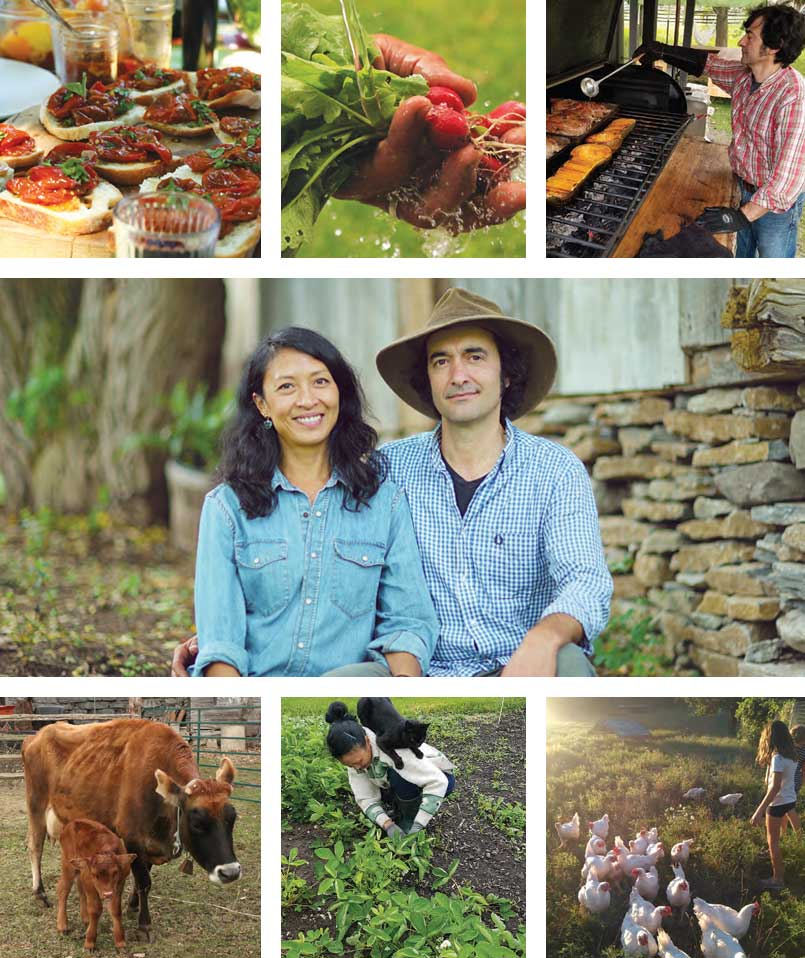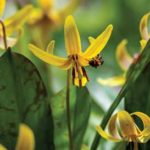
Regenerative agriculture at Quinta do Conde shows how bio-diverse farming can benefit the soil, the air and the appetite.
It could be an oversimplification to say that Joaquim and Amor Conde moved into their 150-year-old farm on the banks of the Black River in search of a good meal, but it did start with a desire to connect with their food source.
“I was 18 years old when I immigrated to Canada from Portugal,” recalls Joaquim.
“It didn’t take much for me to adopt the fast Toronto life and the city’s fast-food culture. But by the time I was 28, I was 60 pounds overweight.” He did an about-turn and spent the next decade learning about food – to the point of considering becoming a farmer.
Part of that learning process was engaging in long conversations with farmers he and Amor met at their local market and researching organic farming techniques. They became more and more interested in growing their own food, but they were limited in what they could do in their urban backyard. “It was becoming clear that our life in the city had run its course. Something had to change,” Joaquim says.
That change came seven years ago when the couple left their jobs, moved to Prince Edward County and began their project to revive the small-acreage farm they bought. Even though the transformation took a lot longer than they anticipated, they were committed to using techniques that had been employed more than a hundred years ago by the farm’s first owners.
“We wanted to see if we could really live off the land,” says Joaquim. “We used organic farming practices because they seemed the best way forward after everything we had researched. That means we only eat what we can grow, and only keep a few animals. We also committed to no-till planting, improving and regenerating our own soil with compost instead of chemical fertilizers.”
The organic farming practices that Joaquim describes are a growing trend among small-scale farmers, who have rebranded this type of farming as “regenerative agriculture.” The practice is gaining global attention because of its potential to restore soil fertility and counter harmful greenhouse gas emissions.
“It’s an old and pretty basic idea,” explains Joaquim. “Our animals graze in the pesticide-free meadows where they scratch up the soil and create manure. We then take the manure and mix in other organic materials, which we then turn periodically to generate nutrient-rich compost.”
Joaquim and Amor take that compost and add it as a top layer to the soil, where they grow vegetables and plant cover crops for the animals to eat.
“Instead of depleting the soil and then adding chemical fertilizers to it, we’re restoring it naturally.”
He further improves the soil by not ploughing it every season, thereby allowing the organisms that live in the soil to break it up naturally. This process improves the soil’s water retention, both preventing erosion and inhibiting waste from seeping into nearby waterways. He also plants cover crops in the off-season. While these crops protect the soil, they offer the bonus of helping to remove harmful carbon dioxide from the air by capturing it and locking it into the soil as beneficial organic carbon.
Joaquim stresses that the key is diversity. “We named our farm Quinta do Conde from the Portuguese words for a ‘traditional bio-diverse agricultural estate’ because we are committed to maintaining this natural ecosystem. Everything works together so we don’t need to buy expensive feed, or compost, or even rent pasture land.”
Their pride in the farm’s diversity influenced the couple’s next big decision.
“We were always inviting friends over for al fresco dinners, and they loved touring the farm and understanding how their meal was grown and raised. We decided to host a ‘harvest dinner’ to show others how organic farming works. After the first dinner, we had such a good time we couldn’t wait to do more,” Joaquim says.
The couple’s “table-at-the-farm” harvest dinners are lively experiences where guests tour the farm while local chefs prepare traditional Portuguese dishes with ingredients from the farm. Braised lamb or pork, artisanal cheeses and charcuterie share space on oversized platters with grilled peppers and home-baked breads. Joaquim even makes his own wine. Once a year he travels to Portugal and crafts olive oil in micro-batches, working with a certified organic farmer whom he visits during the olive harvest in October and November.
They’ve also started offering workshops for children and adults, where every class is a hands-on experience, in addition to operating a farm store where they sell seasonal products and Amor’s antiques.
Even though some of Quinta do Conde’s activities have been put on hold during the pandemic, the farm’s diversity has helped keep their business thriving.
“We feel very fortunate to be here on the farm during this time because our work hasn’t stopped. We’re able to produce enough food that we can even contribute to alleviating some of the pressure on the larger supply chain. Our farm has evolved organically, and we now have a solid plan that is as diverse as life on the farm.”
“We are committed to maintaining this natural ecosystem. Everything works together so we don’t need to buy expensive feed or compost, or even rent pasture land.” JOAQUIM CONDE
It’s been seven years since Joaquim and Amor Conde left the bustle of the city to harmonize with nature in Prince Edward County. Was their search for a better meal worth their lifestyle change?
Joaquim responds without hesitation. “Absolutely! We’re the ultimate foodies, Amor and I. We now live a zero-mile diet and we want everybody to experience it too!”
He adds, “The pandemic has taught us a lot of things about how connected we are to each other, and to the natural world. We don’t expect everybody to do what we did, but my hope is that people come out of this experience and think about living more in harmony with the natural world around us.”
Story by:
Micol Marotti
Photography by:
Paul Cuthbert




